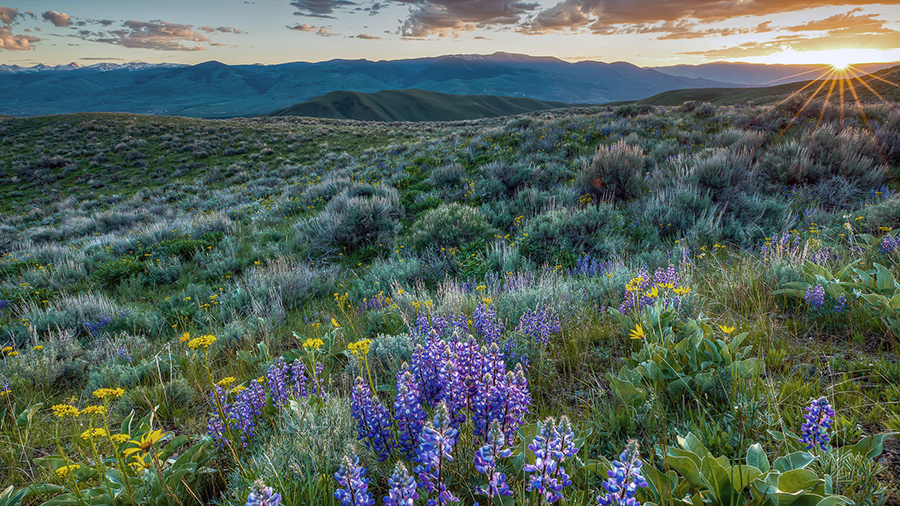The number of visitors to America’s public lands has steadily increased over the last 15 years, while over the same period, funding for recreation decreased more than 20 percent at the U.S. Forest Service (USFS) and the Bureau of Land Management (BLM), according to data released this week by non-profit Outdoor Alliance, working to protect public lands and waters.
Led by the Outdoor Alliance, 34 outdoor recreation organizations and businesses called on lawmakers to “fully fund recreation budgets at the USFS and BLM.” They also reported to have asked Congress to “fund BLM’s Recreation Resources Management program at $100 million and the Forest Service’s Recreation, Heritage and Wilderness at $70 million, with additional funding for staffing, increases that would return these agencies to more sustainable funding levels from Congress in the past.”
The Outdoor Alliance reported that the “BLM has seen a 25 percent reduction in appropriations for Recreation Resources Management adjusted for inflation since 2006.” Over a similar time period, “visits to BLM lands increased 46 percent.” At the Forest Service, funding for Recreation, Heritage and Wilderness “decreased 23 percent between 2010 and 2020, accounting for inflation, while recreational visits increased 17 percent.”
“Outdoor recreation is a significant economic driver in local communities, and a lack of adequate funding threatens the outdoor economy as well as our outdoor experiences,” said Adam Cramer, CEO of Outdoor Alliance.
Outdoor Alliance has previously focused on the fact that inadequate funding is one of the biggest obstacles to protecting public land.
“The process of appropriations is both complex and incredibly important, and voters have a key role to play in asking lawmakers to fully fund the budget items they care about,” Cramer continued. “We have made it easy to ask your lawmakers to fund recreation on our public lands and waters.”
Nationally, the Outdoor Alliance reported that “outdoor recreation contributed $1.1 trillion to America’s economy in 2022, accounting for 2.2 percent of GDP. Recreation on BLM lands contributed $11.1 billion to the economy and 73,000 jobs in 2022 while spending by visitors to national forests and grasslands contributes about $13.7 billion to the US economy and sustains about 161,000 full-and part-time jobs.”
According to Cramer, “persistent funding shortfalls affect outdoor recreation experiences and degrade public lands and waters. Without adequate funding, public lands see greater maintenance issues, trail erosion, trash, and parking problems. Funding shortages make it more difficult for volunteer groups to work on trail maintenance and other stewardship activities because the agencies lack capacity.”
Investing in outdoor recreation programs at the BLM and the Forest Service will “help maintain economic growth and benefits to local communities and provide a return to taxpayers,” Cramer said.
In the past decade, public lands have benefitted from historic investments, including the Great American Outdoors Act, the Infrastructure Investment and Jobs Act, and the Inflation Reduction Act. Both the BLM and the Forest Service are reportedly “putting these funds to use through a wide range of projects, including deferred maintenance,” reported the non-profit.
“While these funds are significant, they cannot be a substitute for regular appropriations. In fact, the shortage of regular appropriations is, in part, what necessitated funds like the Great American Outdoors Act,” Cramer said. “If Congress invests in recreation programs at both the BLM and the Forest Service, it will ensure that funding is quickly put into action to benefit the American public.”
The Outdoor Alliance, reported the other organizations calling on lawmakers to fully fund recreation budgets include the American Alpine Club, American Hiking Society, American Mountain Guides Association, American Rivers, American Whitewater, Appalachian Trail Conservancy, Back Country Horsemen of America, California Mountain Biking Coalition, Concerned Off-Road Bicyclists Association, Conservation Lands Foundation, International Mountain Bicycling Association, Latino Outdoors, Lowelifes Respectable Citizens’ Club, The Mountaineers, National Wilderness Stewardship Alliance, NEMO Equipment, Inc., Next 100 Coalition, Outdoor Industry Association, Pacific Crest Trail Association, Partnership for the National Trails System, Peak Design, PeopleForBikes, Public Land Solutions, REI Co-op, Runners for Public Lands, Sage Trail Alliance, Sierra Business Council, Smith River Alliance, Surfrider Foundation, Vertical Supply Group/Sterling, Washington Trails Association, The Wilderness Society and Winter Wildlands Alliance.
Image courtesy BLM










